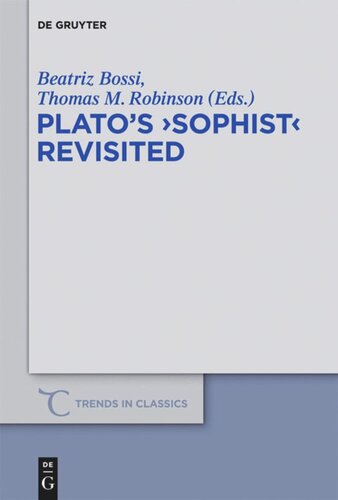

Most ebook files are in PDF format, so you can easily read them using various software such as Foxit Reader or directly on the Google Chrome browser.
Some ebook files are released by publishers in other formats such as .awz, .mobi, .epub, .fb2, etc. You may need to install specific software to read these formats on mobile/PC, such as Calibre.
Please read the tutorial at this link: https://ebookbell.com/faq
We offer FREE conversion to the popular formats you request; however, this may take some time. Therefore, right after payment, please email us, and we will try to provide the service as quickly as possible.
For some exceptional file formats or broken links (if any), please refrain from opening any disputes. Instead, email us first, and we will try to assist within a maximum of 6 hours.
EbookBell Team

4.1
50 reviewsThis book consists of a selection of papers which throw new light on old problems in one of Plato's most difficult dialogues. The papers included fall into three broad categories: a) those dealing directly with the ostensible aim of the dialogue, the various definitions of a sophist from different perspectives (T. Robinson, F. Casadesús, J. Monserrat-P. Sandoval, A. Bernabé, M. Narcy and K. Dorter ; b) a number which tackle a specific question brought up in the dialogue, and that is, how Plato relates to Heraclitus and to Parmenides in the matter of his understanding of being and non-being (E. Hülsz, D. O'Brien, B. Bossi, P. Mesquita and N. Cordero) ; and c) those discussing various other broad issues brought to the fore in the dialogue, such as the 'greatest kinds', true and false statement, difference and mimesis (F. Fronterotta, J. de Garay, D. Ambuel and L. Palumbo).The variety of schools and backgrounds of the authors makes this book unique as a tool for the appreciation of the different approaches possible to well-known hermeneutical problems.